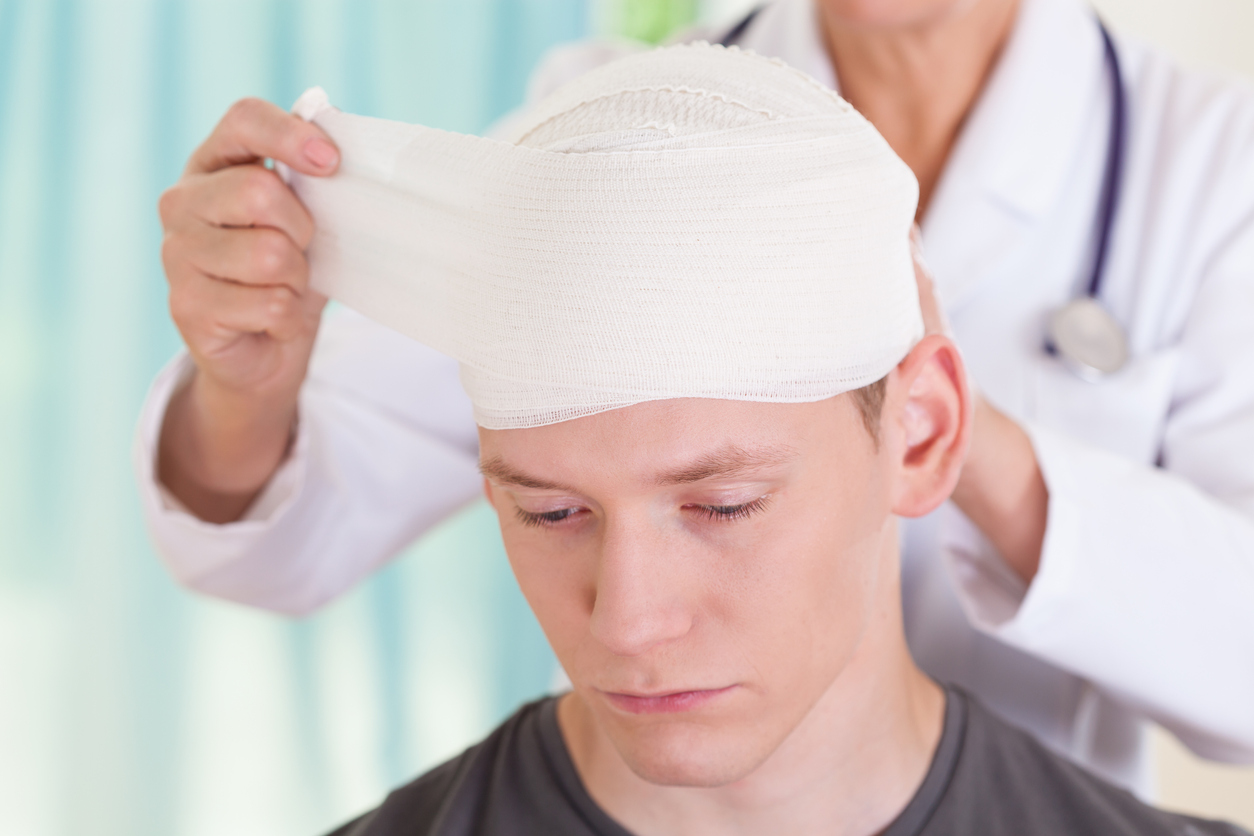Cogburn Davidson | March 26, 2025 | Car Accidents

Delayed concussion symptoms can appear within 24 to 48 hours after a serious head injury. A concussion should always be taken seriously, and you should seek medical attention if you think you may have sustained one.
Concussions from traumatic events like car accidents can be obvious and easy to diagnose. But not all concussions are straightforward. Here are a few things you need to know about delayed concussion symptoms and what you should do about them.
What Causes Delayed Concussion Symptoms?
Delayed concussion symptoms appear when the brain continues reacting to an injury over time. A concussion jolts the brain, causing temporary dysfunction. Some symptoms emerge immediately, but others take time. Swelling, chemical changes, and nerve damage may develop hours or days later, leading to delayed effects. The severity of the impact, prior head injuries, and overall health influence how and when symptoms show up.
Emotional and psychological factors also contribute. Stress and anxiety after an injury may mask symptoms at first. Once the initial shock fades, issues like headaches, dizziness, or trouble concentrating become noticeable. Monitoring any changes after a suspected brain injury helps ensure proper care. A doctor can assess lingering effects and recommend appropriate treatment.
Common Signs That Can Appear Days Later
Headaches, dizziness, nausea, and fatigue often surface days after a concussion. Cognitive problems, such as memory lapses and difficulty focusing, may also develop. Light and noise sensitivity can increase, making daily tasks harder. Sleep disturbances, mood swings, and irritability frequently accompany these symptoms.
Emotional effects include anxiety, depression, and sudden mood changes. These shifts may stem from brain function disruption or frustration over persistent symptoms. Noticing and documenting new or worsening issues helps doctors determine the best recovery plan. Any persistent or severe symptoms warrant immediate medical evaluation.
How Delayed Symptoms Affect Recovery
Delayed symptoms prolong recovery and complicate daily life. Returning to work or school may become difficult due to concentration problems or fatigue. Physical activities, even routine movements, may trigger dizziness or headaches. Recovery often requires extended rest and lifestyle adjustments to prevent worsening symptoms.
A longer healing process may lead to emotional distress. Frustration, anxiety, or depression can develop when symptoms persist. Support from medical professionals, family, and friends plays a crucial role in coping.
Steps to Take if Symptoms Worsen Over Time
Worsening symptoms require immediate medical attention. A doctor can evaluate the situation and adjust treatment as needed. Ignoring these changes risks long-term complications. Keeping a symptom journal helps track patterns and identify triggers.
Adjusting daily activities may ease discomfort. Limiting screen time, reducing bright light exposure, and avoiding loud environments can help. Stress management techniques, such as meditation or deep breathing, may improve mental well-being. Open communication with doctors and loved ones provides additional support during recovery.
Legal Options After a Concussion Diagnosis
A concussion caused by negligence may qualify for compensation. Medical expenses, lost wages, and pain and suffering all impact recovery. Pursuing a legal claim holds responsible parties accountable and helps secure financial support for treatment.
A personal injury attorney can assess the case, gather evidence, and build a strong claim. Medical records, expert testimony, and incident reports strengthen legal arguments. Acting quickly ensures access to necessary documentation and protects legal rights.
Proving a Concussion in a Legal Claim
Proving a concussion claim requires strong medical evidence. Detailed medical records, brain scans, and doctor evaluations document the injury’s severity. A personal injury attorney can collect and organize this information for legal proceedings.
Witness statements and accident reports further support the case. Video footage, if available, strengthens claims by providing visual proof of the incident. Consistent medical treatment and follow-ups demonstrate the ongoing impact of the concussion.
Contact the Las Vegas Car Accident Lawyers from Cogburn Davidson Car Accidents and Personal Injury Lawyers for Legal Help Today
For more information, please contact our Las Vegas car accident attorneys at Cogburn Davidson Car Accidents and Personal Injury Lawyers to schedule a free consultation today.
We proudly serve Clark County and throughout Nevada:
Cogburn Davidson Car Accident & Personal Injury Lawyers Las Vegas
2300 W Sahara Ave Suite 800-816, Las Vegas, NV 89102
(702) 996-4786
Open 24 hours
Cogburn Davidson Car Accident & Personal Injury Lawyers Henderson
2580 St Rose Pkwy Suite 330, Henderson, NV 89074
(702) 541-9766
Open 24 hours
